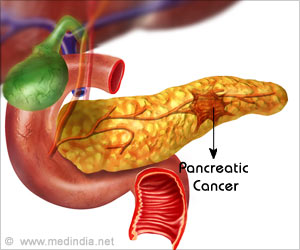Research from Tokyo Medical and Dental University shows how the bacterium A. actinomycetemcomitans worsens rheumatoid arthritis via inflammasome activation.

- A. actinomycetemcomitans exacerbates RA in mice by increasing inflammation and joint swelling
- Caspase-11 is crucial for this inflammation; its deficiency leads to milder RA symptoms
- Potential therapies include targeting inflammasome activation to manage RA and other systemic diseases
Caspase-11 mediated inflammasome activation in macrophages by systemic infection of A. actinomycetemcomitans exacerbates arthritis
Go to source).
A. actinomycetemcomitans can worsen rheumatoid arthritis symptoms by triggering inflammasome activation. #medindia #rheumatoidarthritis #caspase-11’
Periodontal Disease and Rheumatoid arthritis: The Link
Periodontal disease is a common oral health issue caused by bacterial biofilm accumulation around the teeth, leading to gum inflammation and potential tooth loss if untreated. Clinical studies have suggested a relationship between periodontal pathogens and systemic conditions like Rheumatoid arthritis. However, the molecular processes underlying this connection were not well understood until recently.In a recent study published in the International Journal of Oral Science, researchers from TMDU investigated the effects of A. actinomycetemcomitans on RA using a mouse model. Their goal was to elucidate the molecular mechanisms through which periodontal bacteria might exacerbate RA symptoms.
The researchers employed the collagen antibody-induced arthritis (CAIA) mouse model, which simulates many features of human RA. They observed that infection with A. actinomycetemcomitans led to:
- Increased limb swelling
- Cellular infiltration into joint linings
- Elevated levels of the inflammatory cytokine interleukin-1β (IL-1β)
Role of Caspase-11 in Inflammation
A significant discovery of the study was the role of caspase-11, a protein involved in the inflammatory response. The researchers found that caspase-11 is crucial for the exacerbation of RA symptoms. Mice deficient in caspase-11 exhibited milder arthritis symptoms compared to normal mice. This suggested that caspase-11 facilitates the inflammatory processes triggered by A. actinomycetemcomitans.The study further explored how A. actinomycetemcomitans infection affects macrophages immune cells involved in inflammation. Infection with this bacterium was shown to increase IL-1β production, which activates a protein complex known as the inflammasome. The inflammasome plays a central role in initiating and regulating inflammation.
In caspase-11-deficient mice, inflammasome activation was suppressed, and RA symptoms were less severe. This finding underscores the role of caspase-11 in mediating the inflammatory response induced by periodontal bacteria.
Potential Therapeutic Implications in Rheumatoid arthritis
The researchers suggested that targeting inflammasome activation could offer new therapeutic strategies for managing RA. In their study, administration of clodronate, polymyxin B, chloroquine, and anti-CD11b antibodies suppressed inflammasome activation and reduced arthritis symptoms. These interventions highlight potential avenues for developing treatments aimed at reducing inflammation and improving RA outcomes.Beyond RA, the insights from this study may have implications for other systemic diseases linked to periodontal pathogens, such as
The research conducted by TMDU provides valuable insights into the molecular mechanisms through which periodontal bacteria like A. actinomycetemcomitans can aggravate rheumatoid arthritis. By elucidating the role of caspase-11 and inflammasome activation, this study paves the way for developing novel therapeutic approaches to manage RA and potentially other related systemic diseases.
Reference:
- Caspase-11 mediated inflammasome activation in macrophages by systemic infection of A. actinomycetemcomitans exacerbates arthritis - (https://www.nature.com/articles/s41368-024-00315-x#Sec11)
Source-Medindia















